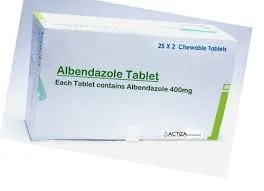- Afrikaans
- Albanian
- Amharic
- Arabic
- Armenian
- Azerbaijani
- Basque
- Belarusian
- Bengali
- Bosnian
- Bulgarian
- Catalan
- Cebuano
- Corsican
- Croatian
- Czech
- Danish
- Dutch
- English
- Esperanto
- Estonian
- Finnish
- French
- Frisian
- Galician
- Georgian
- German
- Greek
- Gujarati
- Haitian Creole
- hausa
- hawaiian
- Hebrew
- Hindi
- Miao
- Hungarian
- Icelandic
- igbo
- Indonesian
- irish
- Italian
- Japanese
- Javanese
- Kannada
- kazakh
- Khmer
- Rwandese
- Korean
- Kurdish
- Kyrgyz
- Lao
- Latin
- Latvian
- Lithuanian
- Luxembourgish
- Macedonian
- Malgashi
- Malay
- Malayalam
- Maltese
- Maori
- Marathi
- Mongolian
- Myanmar
- Nepali
- Norwegian
- Norwegian
- Occitan
- Pashto
- Persian
- Polish
- Portuguese
- Punjabi
- Romanian
- Russian
- Samoan
- Scottish Gaelic
- Serbian
- Sesotho
- Shona
- Sindhi
- Sinhala
- Slovak
- Slovenian
- Somali
- Spanish
- Sundanese
- Swahili
- Swedish
- Tagalog
- Tajik
- Tamil
- Tatar
- Telugu
- Thai
- Turkish
- Turkmen
- Ukrainian
- Urdu
- Uighur
- Uzbek
- Vietnamese
- Welsh
- Bantu
- Yiddish
- Yoruba
- Zulu
ספט . 28, 2024 18:57 Back to list
Disinfectants in Veterinary Medicine for Safe and Effective Animal Care Practices
Disinfectants in Veterinary Use Ensuring Animal Health and Safety
Disinfectants play a crucial role in the veterinary field by safeguarding animal health, preventing the spread of diseases, and promoting overall hygiene within animal environments. With various pathogens capable of causing severe illnesses in both domestic and farm animals, the effective use of disinfectants is imperative for veterinary professionals, animal caretakers, and pet owners.
Understanding Disinfectants
Disinfectants are chemical agents designed to destroy or inhibit the growth of pathogenic microorganisms on inanimate surfaces. In veterinary practices and animal facilities, disinfectants are employed to clean equipment, housing, and other environments that animals inhabit. They differ from antiseptics, which are used on living tissues to reduce the possibility of infection.
Veterinary disinfectants can be classified into several categories based on their chemical composition, including quaternary ammonium compounds (quats), phenols, iodine solutions, chlorine compounds, and hydrogen peroxide. Each of these disinfectants has unique properties, effectiveness, and safety profiles, making them suitable for specific applications in veterinary medicine.
Importance of Disinfectants in Veterinary Medicine
1. Disease Prevention One of the primary functions of disinfectants in veterinary practices is to prevent the transmission of infectious diseases among animals. Pathogens such as bacteria, viruses, and fungi can survive on surfaces and equipment for extended periods, leading to outbreaks if not properly managed. Regular and thorough disinfection of tools, kennels, cages, and surgical areas is essential to maintaining a healthy environment.
2. Control of Zoonotic Diseases Many diseases that affect animals can be transmitted to humans, posing a significant public health risk. Disinfectants help minimize this risk by eliminating pathogens that could potentially infect veterinary staff, pet owners, and the general public. Diseases such as ringworm, leptospirosis, and certain strains of influenza highlight the importance of effective disinfection measures in promoting both veterinary and human health.
disinfectants veterinary use

3. Biosecurity Measures In agricultural settings, where large populations of animals are housed, disinfectants are integral to biosecurity protocols. Farms often face challenges from diseases that can decimate livestock populations. Implementing thorough cleaning and disinfection practices is vital in protecting herds and flocks from infections such as avian influenza and foot-and-mouth disease.
4. Infection Control In veterinary hospitals and clinics, disinfectants aid in controlling nosocomial infections, which are infections acquired during the course of medical care. An efficient disinfection protocol can significantly reduce the risk of cross-contamination between patients and ensure a safe environment for both animals and veterinary staff.
Choosing the Right Disinfectant
When selecting a disinfectant for veterinary use, several factors must be considered, including efficacy, safety, compatibility with surfaces, and appropriateness for the intended application. Not all disinfectants are effective against all types of microorganisms, so it is crucial to choose a product that specifically targets the pathogens of concern. Furthermore, the concentration, contact time, and method of application must be adhered to in order for the disinfectant to be effective.
Safety is another critical consideration. Disinfectants can be toxic to animals and humans if misused. It’s essential to follow label directions carefully, ensure proper ventilation during application, and use personal protective equipment when necessary.
Conclusions
The role of disinfectants in veterinary use cannot be overstated. They are fundamental in maintaining a clean and safe environment, protecting animal health, and preventing disease transmission. With the ongoing challenges posed by emerging infectious diseases, the veterinary field must continue to prioritize effective disinfection practices. By doing so, veterinarians and animal caretakers not only safeguard the health of animals but also contribute to the overall welfare of public health. Investing in appropriate disinfectants and training in their effective use is essential for the ongoing success of veterinary medicine and animal care.
-
Guide to Oxytetracycline Injection
NewsMar.27,2025
-
Guide to Colistin Sulphate
NewsMar.27,2025
-
Gentamicin Sulfate: Uses, Price, And Key Information
NewsMar.27,2025
-
Enrofloxacin Injection: Uses, Price, And Supplier Information
NewsMar.27,2025
-
Dexamethasone Sodium Phosphate Injection: Uses, Price, And Key Information
NewsMar.27,2025
-
Albendazole Tablet: Uses, Dosage, Cost, And Key Information
NewsMar.27,2025













